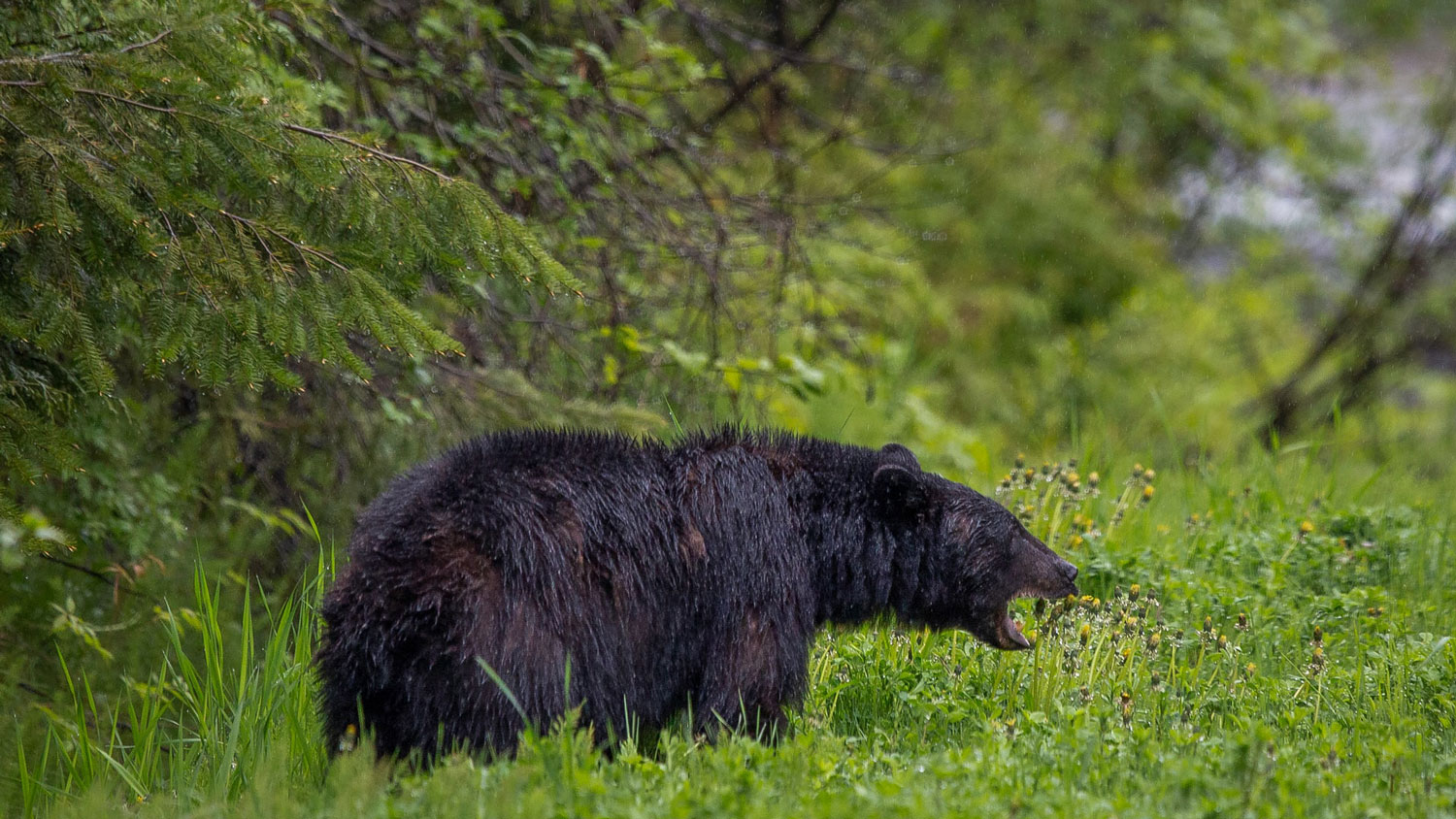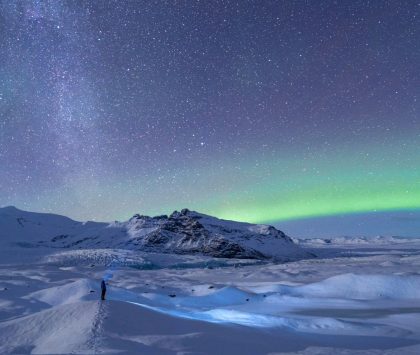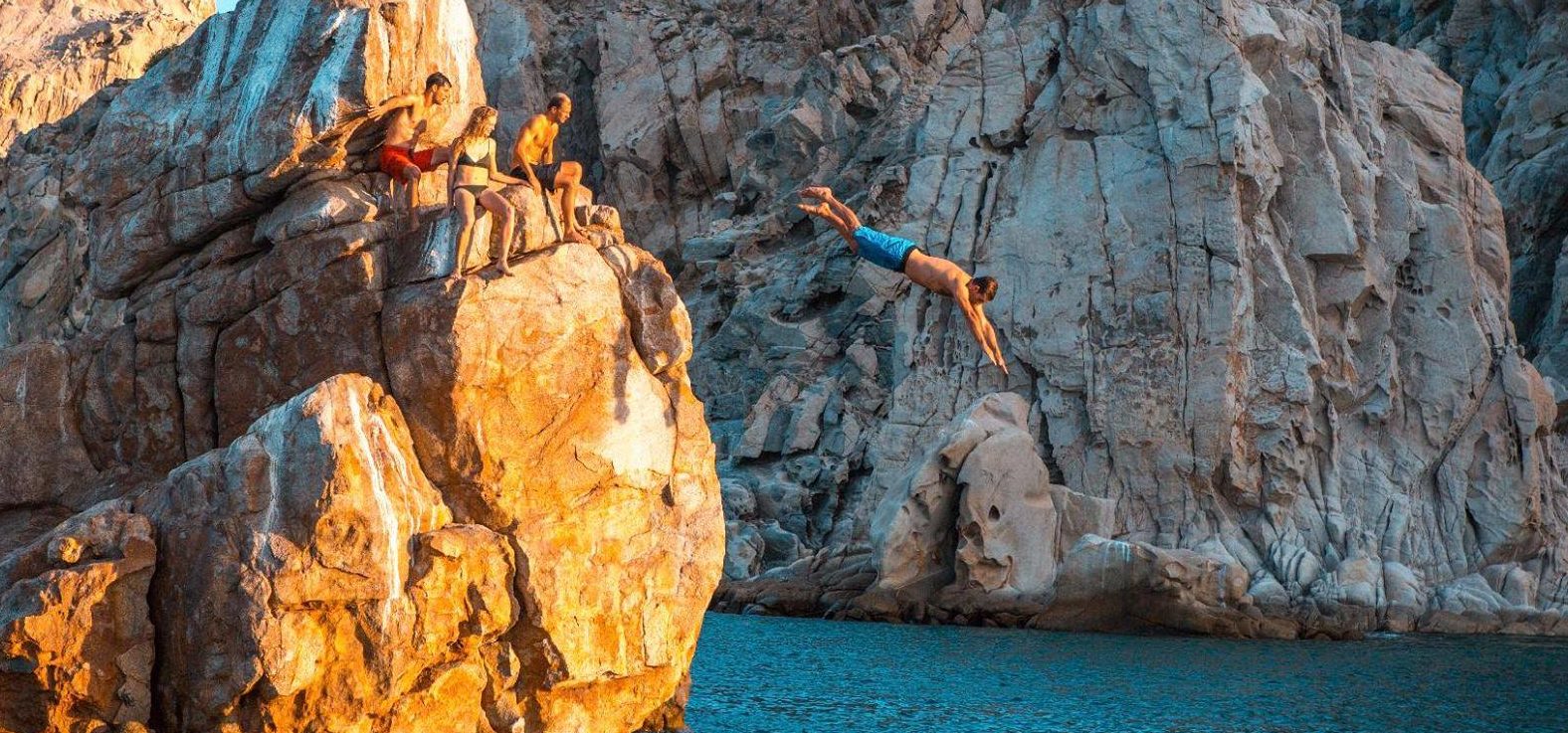It was a warm Saturday, September 12th, Matt Bete was soaking up the sun while enjoying a backyard snooze beside his in-ground pool in Massachusetts. Unbeknownst to him at the time, there was a gate left open on their property which a black bear decided to take full advantage of.
Bete’s home surveillance video had captured the startling close-call encounter between him and the bear entirely. The footage shows a black bear casually sauntering into Bete’s backyard, leisurely strolling around the pool while taking the occasional slurp of water from it. It didn’t take long after this brief period of re-hydration for the bear to notice Bete laid out in a lounger. The bear carefully approached Bete, sniffing his shoe, and finally nudging his foot. Bete woke up to the memorable shock of a lifetime, the face of a black bear who looked just as spooked as he did.
A bewildered Bete scrambled to take a picture with his cellphone but the black bear was already fleeing the scene out of utter fear. He did manage to snap a quick photo in which he immediately sent to his wife, Dawn, who at first thought he was pulling her leg.“Matt texted me a picture of the bear running through the yard and said the bear nudged his foot while he was sleeping by the pool,” his wife, Dawn Bete, wrote on Facebook. “Of course I thought he was kidding!” she added.
Even though Massachusetts has been labeled “bear country,” coming face to face with one would still make for quite the surprise. Black bears are not known to be aggressive towards people, as long as you let them be. “He wasn’t sure how he should react but knew he couldn’t get up that fast but at least he had another chair and table between them if needed,” Bete’s wife Dawn wrote. “Luckily it went running out soon after the encounter.”
Since a considerable amount of people have quarantined themselves to a certain extent or transitioned to a work-from-home environment, wildlife in general has felt safer to explore a wider scope of their surroundings. It is more typical for humans to spot bears out and about publicly in the early summer months however, they can sometimes be seen on the hunt for food prior to commencing winter hibernation. “Bears are trying to take advantage of high-calorie meals this time of year,” Dave Wattles, a Massachusetts black bear biologist told the Boston Herald. “It’s not uncommon to spot one sniffing around backyards and pools, on the lookout for food, particularly in western and central Massachusetts. “Bears are driven by food,” Wattles stated. “Bird feeders are huge sources of calories and we refill them when they’re empty. Bears love them and can’t help it,” he said. “Unfortunately, every time a bear feeds at a bird feeder it is being trained to come to yards and neighborhoods to find food.”
Black bears in Massachusetts have been expanding their range and inhabiting places in the east that they haven’t in the past 250 years. The statewide population is currently estimated at approximately 4500 bears. Omnivores by nature, male black bears range in weight from 130 to 600 lbs while female black bears are 100 to 400 lbs. They have incredible hearing, eyesight, and an extraordinary sense of smell to help detect food and potential dangerous situations. They climb trees to rest, escape threats and to protect their young. Known to mate between mid-June to mid-July and to hibernate around mid-November, emerging in March or April. Any cub litters are born mid to late January, of about 2 or 3 cubs and stay with the mother for 17 months on average.
“We want them using natural areas and not around our homes,” Wattles expressed. “The more time a bear spends around our homes the greater the chances of a negative encounter. The only way to reduce the chances of those, is to remove the food sources.”








